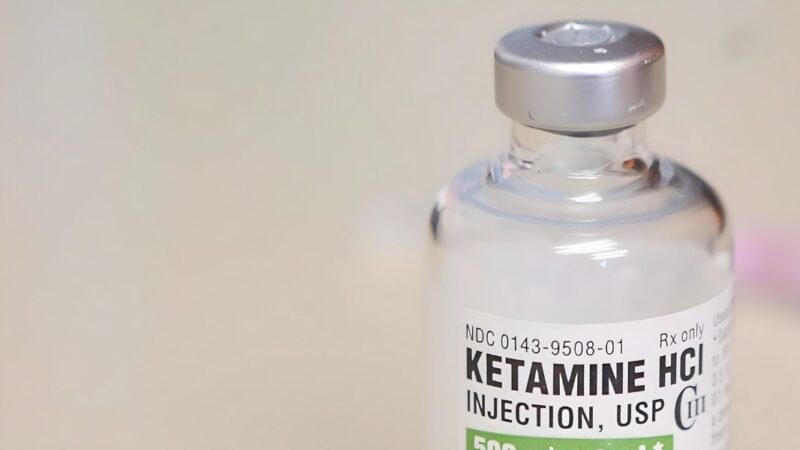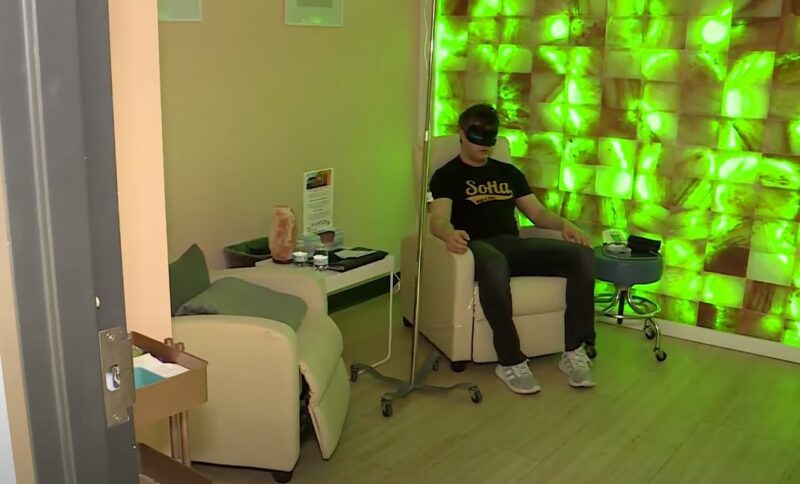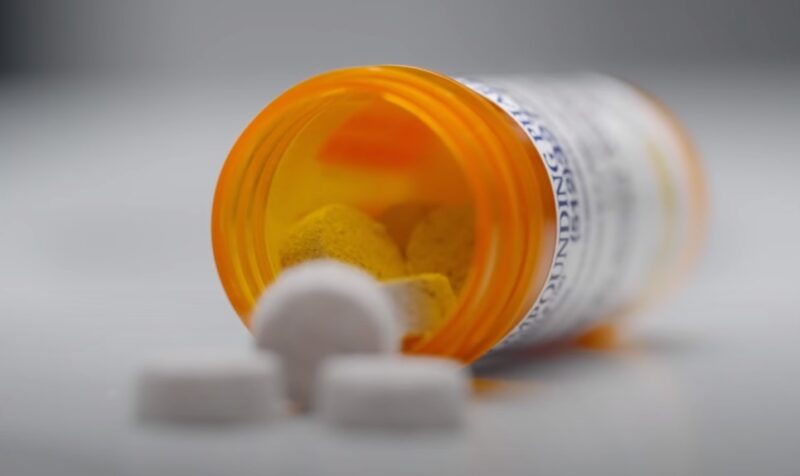In recent years, the medical community has been abuzz with the potential of ketamine therapy as a revolutionary treatment for severe depression, a condition that plagues millions worldwide. Traditionally, treatments have ranged from pharmaceuticals to psychotherapy, and more invasive procedures like electroconvulsive therapy (ECT).
However, a new contender, ketamine, is showing promise for those who have found little relief from conventional methods. This article looks into the efficacy of ketamine therapy, supported by the latest research and real-world patient experiences, underscoring its potential as a game-changer in mental health care.
Key Takeaways
- Ketamine Offers Rapid Relief for Treatment-Resistant Depression: Unlike traditional antidepressants, which may take weeks to show effects, ketamine therapy provides rapid relief from depressive symptoms, often within hours to days after treatment, offering a lifeline for those with severe, treatment-resistant depression.
- Superior Efficacy with Fewer Side Effects Compared to ECT: Ketamine has demonstrated a higher success rate in improving depressive symptoms compared to electroconvulsive therapy (ECT), with significantly fewer side effects, such as memory loss, making it a preferable option for many patients.
- Not Just a Temporary Fix: While ketamine therapy is not a permanent cure for depression, it can significantly reduce symptom severity and improve quality of life. The treatment’s effects can be long-lasting when integrated into a comprehensive care plan, including other therapies and healthy lifestyle changes.
- Important Considerations for Administration: Due to its hallucinogenic properties, ketamine therapy requires careful administration under medical supervision. This controlled setting helps mitigate the risks of addiction and misuse, ensuring patient safety while capitalizing on the therapeutic benefits.
- Accessibility and Ethical Considerations Remain a Challenge: Despite its potential, the accessibility and affordability of ketamine therapy pose significant challenges. Efforts are needed to ensure that this promising treatment is available to all segments of the population, addressing ethical concerns surrounding healthcare equity.
What Did the Study Comparing Ketamine to ECT Find?

A pivotal study conducted with 403 patients has placed ketamine therapy in the limelight. Participants, all suffering from treatment-resistant depression, were treated over three weeks and observed for an additional six months.
The findings were notable: 55% of patients treated with subanesthetic doses of ketamine experienced sustained improvement in depressive symptoms, compared to 41% who underwent ECT. Remarkably, ketamine achieved these results without the significant side effects associated with ECT, such as memory loss, highlighting its safety profile alongside its efficacy.
This study, the largest real-world comparison of its kind, suggests that ketamine could be a viable alternative to ECT for some patients, offering fewer side effects and a similar, if not better, success rate in alleviating depressive symptoms. Funded by the Patient-Centered Outcome Research Institute and sponsored by Cleveland Clinic, the research emphasizes the need for further investigation, especially concerning patients with acute suicidal depression.
A Patient’s Journey: Kim Crespo’s Story
Kim Crespo’s experience with ketamine therapy further illustrates the potentially life-changing benefits of this treatment. Diagnosed with clinical depression in 1992, Crespo found relief through ketamine infusions at Harris Health System’s Ben Taub Hospital in 2012.
The results were immediate and profound: her depression symptoms vanished, and the effects have persisted for six years without the need for new drugs or increased dosages. Crespo’s story is a testament to the enduring impact of ketamine therapy, which she refers to as a “miracle drug.”
How Effective Is Ketamine in Treating Depression?
Ketamine therapy boasts a higher success rate (50-70%) compared to traditional antidepressants (40-45%) for treating severe depression. Its mechanism, involving the repair of damaged nerve cell synapses, offers a novel approach to mental health treatment.
While not a permanent cure, ketamine can significantly reduce symptom severity and improve the manageability of depression, especially when combined with other therapies and healthy lifestyle practices.
What Should Be Considered Before Starting Ketamine Therapy?
Despite its promising results, ketamine therapy does come with caveats. As a hallucinogen, it requires careful administration under medical supervision to mitigate risks, including addiction and misuse.
Dr. Asim Shah, chief of Psychiatry at Ben Taub Hospital and a co-investigator of the ketamine research, underscores the importance of monitoring and responsible use.
What Ethical Issues Are Associated with Ketamine Therapy?

The burgeoning interest in ketamine as a treatment for severe depression brings to the forefront issues such as availability, affordability, the potential for misuse, and the imperative for long-term studies to understand its implications fully. One of the primary ethical concerns revolves around the availability and affordability of ketamine therapy.
As a relatively new treatment modality, there is a risk that it could become an option only for those who can afford it, potentially widening the gap in mental health care accessibility. Ensuring that this groundbreaking treatment is available to all segments of the population, regardless of socio-economic status, is crucial for maintaining equity in healthcare.
Healthcare providers must navigate these challenges with a commitment to patient safety, balancing the drug’s significant benefits against the risks of misuse.
FAQ
Can ketamine therapy be used for all types of depression?
Ketamine therapy is primarily used for severe, treatment-resistant depression. This means it’s most effective for individuals who haven’t responded to traditional treatments like antidepressants or psychotherapy. It may not be the first line of treatment for mild or moderate depression.
How quickly does ketamine therapy begin to show results?
Many patients report feeling relief from depressive symptoms within hours to days after receiving ketamine therapy, which is significantly faster than traditional antidepressants that can take weeks to become effective.
Is ketamine therapy a one-time treatment?
Ketamine therapy typically involves a series of infusions or doses. The exact number and frequency depend on the individual’s response to the treatment. It’s not usually a one-time treatment but a part of a comprehensive treatment plan that may include other therapies.
Are there any psychological side effects of ketamine therapy?
Some patients may experience temporary dissociative or psychedelic experiences during ketamine administration. These effects are generally short-lived and diminish after the treatment session. Monitoring by healthcare professionals ensures patient safety during these experiences.
Can ketamine therapy lead to addiction?
While ketamine has the potential for abuse and addiction, its use in a controlled medical setting with strict supervision minimizes these risks. Medical professionals carefully monitor dosage and frequency to prevent dependency.
How does ketamine therapy compare cost-wise to traditional depression treatments?
Ketamine therapy can be more expensive than traditional depression treatments due to the need for multiple sessions and the requirement of administration in a clinical setting. Insurance coverage varies, and for some, this may make ketamine therapy less accessible compared to traditional antidepressants or psychotherapy.
Final Words
Ketamine therapy, alongside its FDA-approved nasal spray form known as Spravato (esketamine), represents a significant breakthrough in the treatment of severe depression, offering hope to those who have exhausted other options. With its favorable success rate and manageable side effects, it stands as a potent alternative to traditional treatments.
However, as with all medical interventions, it requires thoughtful consideration and professional oversight. As research continues, the future looks promising for ketamine therapy to become a staple in mental health treatment protocols, offering a new lease on life for patients.

